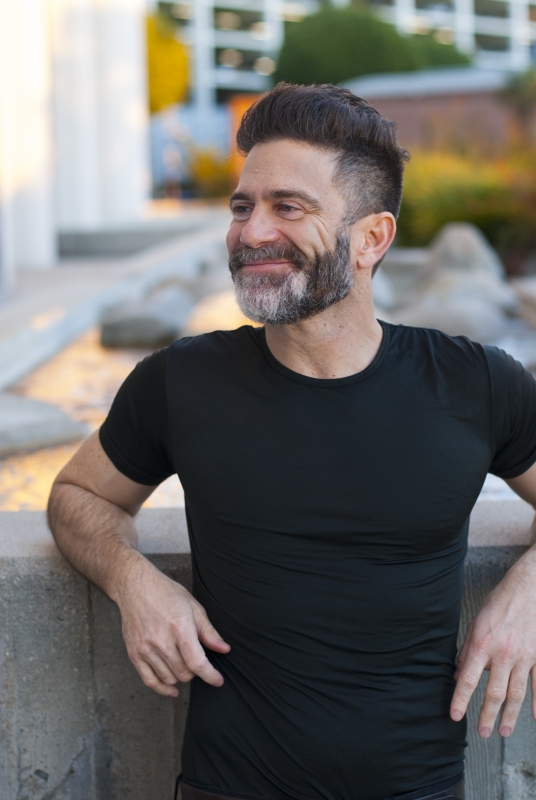|
|
||
|
Pro Tools
FILMFESTIVALS | 24/7 world wide coverageWelcome ! Enjoy the best of both worlds: Film & Festival News, exploring the best of the film festivals community. Launched in 1995, relentlessly connecting films to festivals, documenting and promoting festivals worldwide. Working on an upgrade soon. For collaboration, editorial contributions, or publicity, please send us an email here. User login |
Jud Süss hits a raw nerve in BerlinJUD SÜß-- A Film With a Conscience about a Film Without a Conscience Hits a Raw Nerve in Berlin "JUD SÜß" (Jew Sweet), was the title of a film commissioned by Nazi propaganda minister Joseph Goebbels in 1940, to be made as an anti-Semitic vehicle intended to inflame the German people against the Jews of Germany and set the stage for their extermination, then in the early planning stages. "Jud Süß -- Film ohne Gewissen" is the title of a new film by ace German director Oskar Roehler, which goes back to 1940 to tell the story behind the making of this most notorious film in German cinema history --which he calls in his own title "A film without a conscience". The original "Jud Süß" is still considered to be so racist and inflammatory that it is to this day legally banned from public screenings in Germany, and prints of the film can be seen only at rare special screenings for academic personnel under strict supervision. Even Leni Reifenstahl's famous glorification of the rise of Nazi militarism, "Triumph of the Will" has never been put under such a ban as it is considered to be an historical work of documentary art, whereas "Süß" is seen, right up to the present, as an an evergreen piece of racist propaganda which might still incite neo-Nazis in Germany to violence against Jews, even today. Surprisingly this clearly well-intentioned film by a leading German director of liberal persuasion was greeted with boos of hysterical outrage by elements of the German critical establishment at the general press screening. No other competition film this year was booed --clearly a still highly sensitive Germanic nerve was struck. Those who were against the film didn't just dislike it -- they HATED it --and surely not on esthetic grounds alone. ‘Jud Suess – Film ohne Gewissen’ is essentially a film about a film, and to some extent a film within a film (as extensive portions of the reconstructed original film are shown), which basically follows the rise and fall of the actor Ferdinand Marian, who was forced to play the leading role in Josef Goebbels’ fiercely anti-Semitic 1940 film ‘Jud Suess’. No cliché goose stepping soldiers are to be seen in this picture which is set mostly among the elite-polite society of the Nazi regime, providing an unusual view of the period and the people behind the scenes, except, of course, for Goebbels himself who was very much in the public eye as well. At the very beginning of the film Goebbels (a highly manic but extremely sly Moritz Bleibtreu) spots Marian at a rehearsal of Shakespeare’s "Othello" playing Iago, and concludes that he will be the perfect actor for the title role in his planned anti-Semitic propaganda film Jew Suss (Jud Süß). Marian feels he is unsuited for this unsavory role because he isn't even part Jewish (and the role might actually injure his career), but Goebbels is convinced that he "looks Jewish" enough, and that Iago is the perfect subconscious metaphor for the hateful Jew. Against his will he is forced into playing the title role of the film which becomes a gigantic hit and makes him an overnight star. But his beautiful wife (Martina Gedeck) who is half Jewish, doesn’t like his new image, senses danger, and begs him not to return to Germany when they attend the Premiere of the film at the 1940 Venice Film Festival in Italy. (They can go to Casablanca (!) and from there take a boat to America, says she --shades of Rick's Cafe). And here, a cute insert --we are informed that the film has been highly praised by a young Italian critic with the remarkable name of "Michelangelo Antonionio"! But Marian wants to go back to Berlin for the German premier, which he does, and then basks in his new found glory. As the war progresses Jewwish wife Dora is carted off to Auschwitz and Marian finds himself in a position very similar to that of the actor in "Mephisto", who was manipulated by the Nazis against his will to promote the aims of the Third Reich in Hungarian Istvan Szabo's 1981 Oscar winning film of that name. Combining facts and fiction, Roehler provokes his potential critics by perhaps overemphasizing certain details and taking certain liberties with the facts. For example, Marian's wife was not Jewish, but, in fact, director Veit Harlan's wife was!-- and it was she who was carted off to Auschwitz. In Roehler's film the actor Marian swept up in the Nazi madness turns into an alcoholic and finally, just after the war, commits suicide by smashing his car into a tree. In real life Marian was killed in a car crash in 1946, but it is not clear that this was a suicide, nor is it exactly clear that he was dissatisfied with his Nazi film career, which went on rather well after Süß. However, Austrian actor Tobias Morreti, very popular in Germany from Television, plays Ferdinand Marian much as Klaus Maria Brandauer played actor Hendrik Hoefgren in Szabo's "Mephisto", as a puppet manipulated by the Nazis and finally destroyed by them. In fact, the current "Jew Suss – Rise and Fall" is a film that has much in common with its Hungarian predecessor thirty years ago, but nobody then criticized director Szabo for toying with the facts to achieve dramatic effect. At the press conference director Roehler defended himself against the boo(r)ish critics by pointing out that it was not his intention to make a documentary about Süß (several such documentaries already exist), but rather to produce a meaningful dramatization of the events surrounding the making of the original Goebbels Hate Film. Many German critics found Moritz Bleibtreu's Goebbels way too over the top but the actor also defended himself at the press conference saying that this Goebbels was meant to be a satire, not a documentary portrayal of the man, and this is precisely what rubbed the Nazi still lurking in the bones of many of these critics the wrong way. ("How dare you make fun of such a key figure in German history!") -- I personally found Bleibtreu's Goebbels to be extremely effective and satirically hypnotic -- arguably the best thing he has done to date. Perhaps another point that didn't go down too well with the neo-anti-Nazi German critics, was the fact that Goebbels is here presented not as a madman, but as an extremely clever master of propaganda who knew that propaganda has to be subtle in order to be effective. In the Goebbels documentary "The Goebbels Experiment", presented here in 2005, based on the minister's own personal diaries, Goebbles stated that he found the Russian propagandist Sergei Eisenstein "too heavy handed" to be believable. No dummy was this notorious propaganda minister, and a very canny portrayal by Herr Bleibtreu, indeed --one that, in this writers's humble opinion, should have won the Best Actor Silver Bear by a mile, rather than the insipid booby prize bestowed ex-aequo on a pair B-Russian actors for their roles in an boring snowbound Russian B-picture ("How I spent Last Summer in the Arctic"). I went out of my way to see "Süß" a second time with an ordinary German audience (no film critics or journalists), and this time there were no boos but a reasonably hearty round of applause as the end credits rolled. Significantly, Katja Nicodemus, the main critic of the intellectual German weekly "Die Zeit", in a TV interview the day after the controversial Press screening came right out and called a Spade a Spade, saying, "As a German -- I am shocked by the reaction of the German press to this film". What all this means in terms of collective German guilt feelings over the role of Germany as Genocide Inc. during WW II is really hard to sum up nicely. There are clearly many Germans still around who would prefer to see the whole thing quietly swept under the carpet, or at least portrayed in a more "savory" documentary (which is to say, "unemotional") manner. Maybe some politically over-correct Germans didn't like the fact that Roehler took the liberty of having his actors sing the banned Nazi anthem "Deutschland Über Alles" in full, at a Christmas party near the beginning of the film --too realistic, nicht wahr? (Und, isn't this supposed to be a VERBOTEN song!) Alex Deleon, post Berlin Festival looking back 08.03.2010 | Berlin's blog Cat. : 1981 Oscar actor Alex Deleon America Auschwitz Berlin Casablanca Cinema of Germany Critic Deutschland Über Alles Die Zeit Director Disaster Disaster Dora Entertainment Entertainment Ferdinand Marian Ferdinand Marian Films Genocide Inc. German cinema Germany Hendrik Hoefgren Italy Jew Suss Jew Suss – Rise and Fall Jew Suss: Rise and Fall Josef Goebbels Joseph Goebbels Joseph Goebbels Jud Suess Jud Süß JUD SÜß Jud Süss Katja Nicodemus Leni Reifenstahl Maria Brandauer Martina Gedeck Mephisto Michelangelo Antonionio Minister Moritz Bleibtreu Nazi propaganda Oskar Roehler Othello Person Career Person Travel premier Propaganda Rick's Cafe Sergei Eisenstein Sus Süß the 1940 Venice Film Festival The Goebbels Experiment Tobias Morreti Triumph of the Will Veit Harlan Veit Harlan FILM
|
LinksThe Bulletin Board > The Bulletin Board Blog Following News Interview with EFM (Berlin) Director
Interview with IFTA Chairman (AFM)
Interview with Cannes Marche du Film Director
Filmfestivals.com dailies live coverage from > Live from India
Useful links for the indies: > Big files transfer
+ SUBSCRIBE to the weekly Newsletter Deals+ Special offers and discounts from filmfestivals.com Selected fun offers
> Bonus Casino
User imagesAbout Berlin Chatelin Bruno Chatelin Bruno |




























